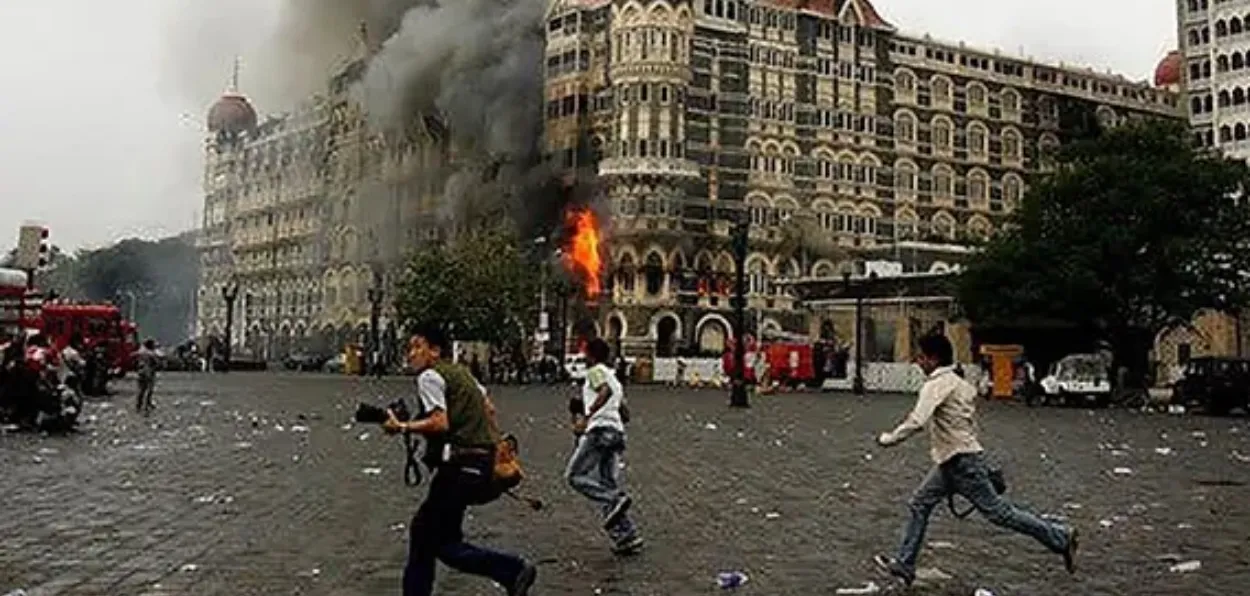
 Aasha Khosa/New Delhi
Aasha Khosa/New Delhi
The imagery of the 26/11 Mumbai attacks and the shock and pain that its perpetrators – Lashkar-e-Toiba terrorists sponsored by Pakistan – inflicted on us left an indelible mark on the collective consciousness of Indians. The terrorists not only killed 166 people including foreigners but also firmed the Indian public’s resolve to support the government’s counter-terrorism and Pakistan policies.
After 16 years, it’s no exaggeration to say that the attack pulled the then-Manmohan Singh government out of reverie into setting up the pan-India body – the National Investigation Agency – to deal with terrorism. The NIA ended jurisdictional disputes over investigations in dealing with the threat to India’s security from terrorists. In the coming years, India no longer limited its reaction to condemning Pakistan and asking the world to rein in a rouge country but began premepting terrorists designs and hitting Pakistan where it hurts the most.
Most importantly the 26/11 changed the perception of a common Indian about terrorism being a localised problem that doesn’t affect him. Suddenly activists who lit candles on the Wagah-Attari border to pressure India into being nice to Pakistan and perpetuating the myth of India-Pakistan being organically the same, vanished.
The live television coverage of Pakistani terrorists holed-in in the top hotels, the Chabad house (Jews' place of worship) and menacingly peeping out with their guns; NSG commandoes descending on the terrace of the house where terrorists had lodged themselves proved a boon. It made Indians more realistic about terrorism.
On the psychological level, the attacks ended India's casual, chalta hai, approach to cross-border terrorism and the romantic notions of India-Pakistan unity.
In hindsight, it looks ridiculous but is true that the governments waited for 26/11 to realize the basic need for a pan-India anti-terrorism agency. That too in a country that had gone through a painful and bloody insurgency in Punjab and was tackling another spell in Kashmir.
Setting up of the National Investigation Agency (NIA) was the first tangible outcome of the 26/11; the second was a change in public perception about what Pakistan was up to for India and the third was the Indian government firming up the resolve to deal with terrorism on the global scale.
Also, the optics of 26/11 and how the Indian state and people dealt with it changed the perception of India being a soft state and unable to tackle major challenges involving firm and armed actions required on such occasions. I remember being asked by a foreign journalist who is married to an Indian and lives in Delhi if we had invited the Israeli commandoes to deal with terrorists!
She was referring to the scene on the TVs of NSG commandoes descending on the rooftop of the Chabad House in Nariman Point where the Pakistanis had killed a Rabbi and his wife. Their helper Samantha had miraculously escaped the House with their just-born child.
For her and probably the rest of the world, India was all about culture, dance, art, and festivities.
As the Army, NSG, and the Police fought terrorists at seven spots - a hospital, railway station, a restaurant, a Jewish center, and two luxury hotels, including the Taj Mahal Palace - the world saw the teeth of the Indian State through the television coverage of the events unfolding in Mumbai.
These teeth became sharper with Narendra Modi becoming the Prime Minister and India's anti-terrorism policy firming up further. It was under this policy that Modi became the first leader to condemn the Hamas terrorists’ attack on civilians on 7/10. His government was also among the frontline states to send humanitarian aid for the people of Gaza who came under attack from Israel.
Today's India has moral clarity in telling terrorists from civilians and sympathising with real victims of terrorism be it the civilians of Gaza who have been thrown into a war by Hamas or Israeli civilians brutalised, murdered, raped and killed by the same terrorist group.
26/11 also saw a united India as never before. Images of common Mumbaikar standing stoically on the roadsides and offering food and tea to policemen fighting the holed-in terrorists, youngsters lighting candles and marching for peace of the killed people, and helping each other broke the Western stereotype of a divided India.
From that day, Indians have been most respectful to their fallen soldiers be it on the border or in action against terrorists. The outpouring of mourners for the cremation and funerals of soldiers fighting terrorists is organic and phenomenal. The success of movies like Uri, the Surgical Strike, Sam Bahadur, and Fighter, showed India’s appetite for knowing the reality of soldiers who fight for India’s security.
As the 26/11 happened seven years after 9/11, one of its outcomes was that it further firmed up the global mood of taking on the terrorism-sponsoring States head-on. Thus began the cold-shouldering of Pakistan by the West and it was happening for the first time since its birth in 1947.
Pakistan’s framework that enabled terrorists to raise and route funds came under scrutiny by the global watchdog the Financial Action Task Force (FATF). The country remained on the grey list of FATF for four years. In the meanwhile Islamabad’s credibility had already plummeted to a point of no return. The law of karma has brought Pakistan to almost the level of a failed state.
Following the public mood in India, the government took a hard stance on Pakistan with Modi’s famous quote “Talks and terror cannot go together.” Though Modi tried to break the ice with Pakistan a couple of times, he too was pushed into giving up his efforts to drill sense into the minds of Pakistani leaders to give up the policy of using terrorism as state policy.
Even after this Pakistan didn't jettison its policy of using terrorists to wage a proxy war against India yet things had changed. Pakistan is today home to the third largest number of terrorists and terror groups proscribed by the United Nations Security Council. Behind this is a lot of data collaboration between India and the USA. The list of banned terrorists includes Syed Hafiz, the mastermind of the Mumbai terror attacks who is supposedly in jail for 31 years for terror funding.
Pakistan didn’t desist from staging grand terrorist strikes – all attributed to non-state actors (Read terrorists raised by the Deep State) like in Uri, Pathankot, and Pulwama.
India under Narendra Modi hit hard by striking deep in the Pakistani territory of Balakote forcing the Pakistan Army to sit up and rewrite its rule book for war strategy. In this document circulated among its officers, the Army has admitted that the Balakote strike has changed the paradigm of war in South Asia. In simple terms, it means that the nuclear threat is not working against India.
In terms of preparedness, for the first time, India sensed the vulnerability of India’s vast coasts and designated the Indian Navy as the authority responsible for overall maritime security.
